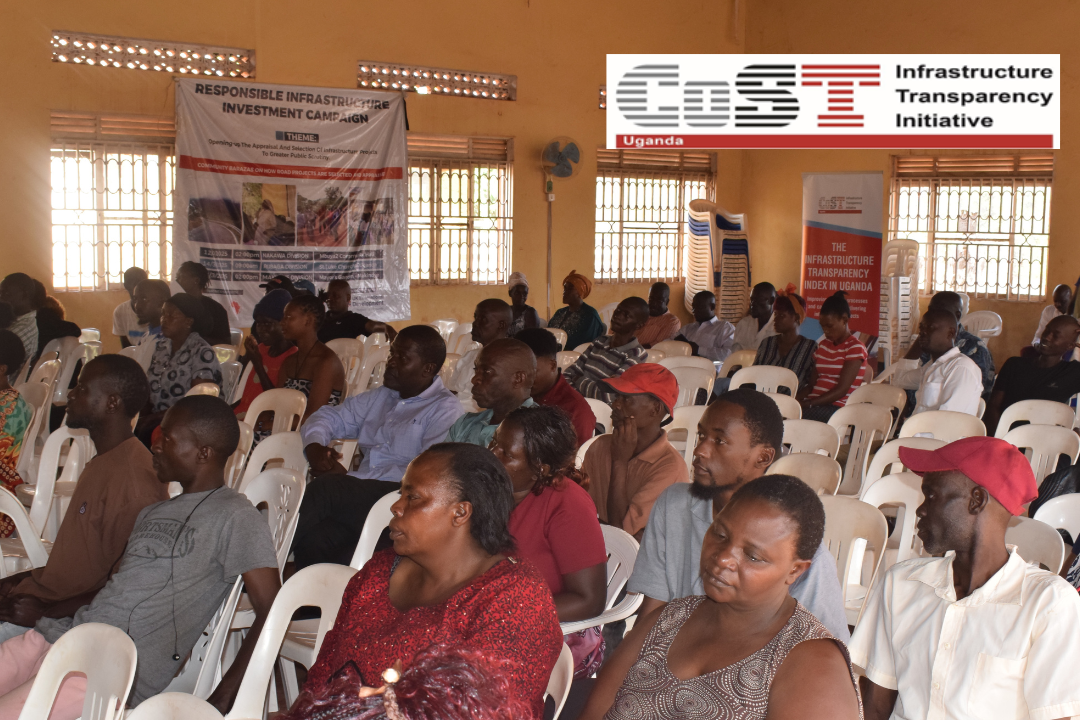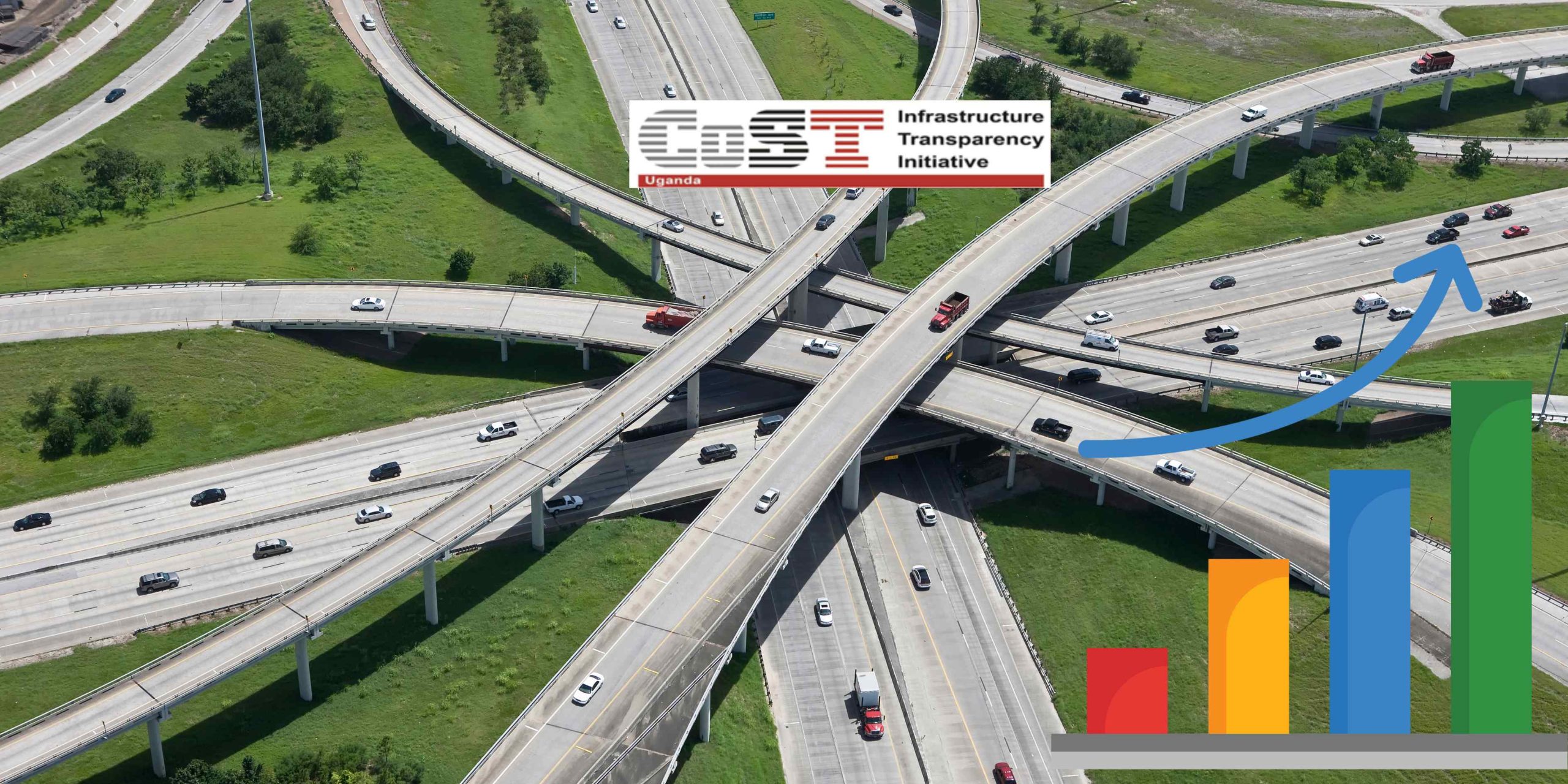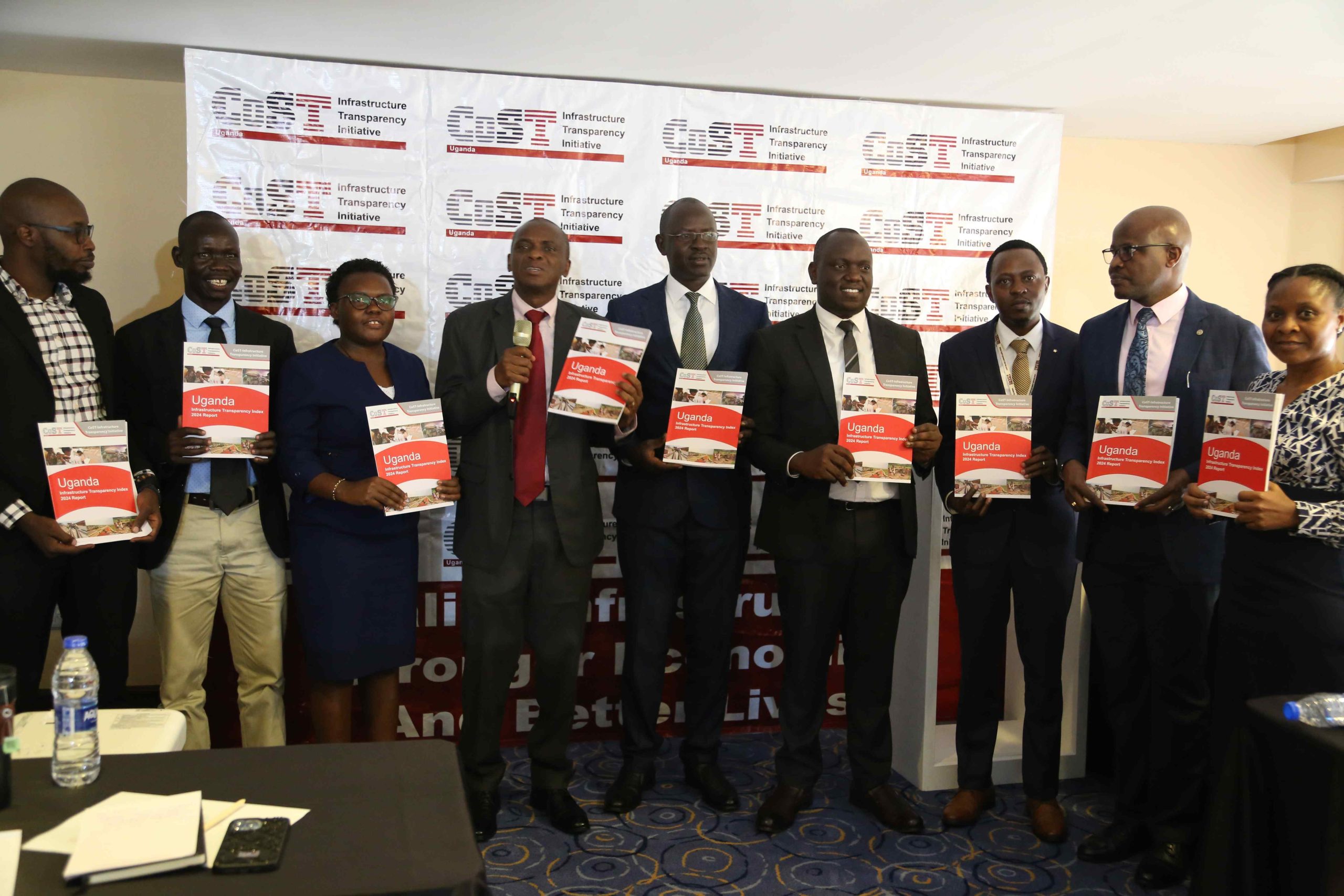
In today’s rapidly developing urban spaces, infrastructure projects play a crucial role in improving the livelihoods of the inhabitants. Whether new or old roads, drainage systems, or community facilities, improve connectivity and foster economic growth which enhances lives of the citizens. However, the success of these projects’ implementation depends not only on their design and execution but also on the level of community involvement and the transparent manner of its implementation.
At CoST Uganda, we champion Inclusive, Transparent, Accountable, and Climate Resilient Infrastructure project deliveries. Our activity implementations this year, emphasized citizens participation and 5 Baraza meetings were held under the Responsible infrastructure project that focused on opening project selection and appraisal to public scrutiny and others under the 6th Assurance (Independent Review) process. These meetings revealed both opportunities and challenges faced by local communities in engaging in public infrastructure projects.
- The 6th Assurance Process: Empowering Communities for Transparency and Accountability
The 6th Assurance (Independent Review) Process, a major milestone, it emphasized both Reactive and Proactive data use to enhance Transparency and accountability. Participants were introduced to the Desk Review process, a critical mechanism for assessing published data and identifying gaps in Infrastructure Data Disclosure.
One recurring concern identified through this process is that the five selected districts for this exercise had not published project data on the Government Procurement Portal (GPP) hence limiting public oversight and trust. The CoST team emphasized the role of Road Infrastructure data publication with the incorporation of CoST’s standards.
A significant effect from the Assurance Baraza meeting came from Onen, a local resident of Nwoya district, who volunteered to offer part of his land member for health care service extensions in their village, demonstrating the value of citizen participation in the infrastructure projects.
Whereas other community members highlighted their limited involvement in project identification for road Infrastructure Projects, no land compensations, need for rehabilitation of more roads and overcharges on electricity. Currently, we wait for the final report findings and recommendations for the 6th Assurance Process.
- The Responsible Infrastructure Project
In our pilot projects, assessing whether the 32 New Data Points offer sufficient information on project selection and appraisal, we have been able to involve different stakeholders to gather their insights on how projects are selected and appraised.
One of the key takeaways from our recent Baraza discussions conducted within Kampala divisions was the need for greater community consultation and information sharing at every stage of infrastructure development,
particularly before projects begin. While KCCA makes efforts to consult community leaders, this doesn’t always translating into tangible benefits for the wider community. Often, only those directly affected, such as landowners, are consulted. Residents expressed frustration at the lack of clear, timely information about projects happening in their neighborhoods, Poor Safety measures including, (Unmarked zebra crossings, fading humps, uncovered trenches, no security lights), no consideration for People with Disabilities in road constructions, Poor drainage system designs leading to heavy flooding during rainy seasons and Environmental concerns such as the destruction of trees along roads and improper waste disposal during road construction.
Addressing Key Concerns
The community called for immediate interventions, such as the installation of traffic lights, and improvement of road signage to ensure safer passage for pedestrians and motorists alike.
“We need to be informed, involved, and respected,” one resident emphasized, capturing a shared sentiment that communities often feel left out of development conversations that directly affect their lives.
Key agencies like KCCA, NEMA, and UMEME were urged to carry out comprehensive sensitization campaigns, especially on waste management and environmental issues.
“These Barazas should not be one-time events,” said another participant. “They need to reach every ward and every zone. People need to be heard and share their inputs.”
Construct larger, more effective drainage systems to handle the increasing volume of water and prevent further floods & destruction.
Community Engagement must be embedded throughout the project lifecycle to ensure projects address real community needs.
Promoting transparency and accountability in the Responsible Infrastructure project delivery.
In line with our mission to enhance transparency and accountability, CoST Uganda, work closely with Government entities such as (Ministries, Departments, Agencies including PPDA, Authorities including the Kampala Capital City Authority (KCCA), the private sectors, CSO’s, and community leaders to ensure that infrastructure projects are designed and implemented with the needs of the people at the forefront. Together we aim to design and implement people centered and climate resilient infrastructure projects.
We believe that community empowerment is essential to sustainable development. For this to happen, the right communication channels must be established and maintained throughout the entire project lifecycle. We have facilitated trainings for CSO’s, public officials, and journalists on areas of improving Infrastructure data Publications, incorporating data points for OC4IDS in project selection and appraisal among other topics for better infrastructure projects.
Organization Funding
We are deeply thankful that our work during this reporting period is supported by FCDO through the CoST International Secretariat, with additional in-kind support from partners. While no safeguarding incidents have been reported yet this year, we continue to prioritize the safety and integrity of our operations.
Amplifying Community Voices
Our work and community outreaches received extensive media coverage published for national input.
Shift Media News https://www.shiftmedianews.com/review-cost-uganda-launches-6th-assurance-process-to-enhance-infrastructure-transparency/ , war on shoddy infrastructure: https://bit.ly/3SD5C3O
Bukedde TV: https://bit.ly/4bZmxGJ
Engagements with KCCA: https://bit.ly/4gOkkic
Citizen reacts on traffic along Entebbe express highway: https://x.com/KiwaSsendege/status/1883111879121539484
New vision Media: https://www.newvision.co.ug/category/news/how-kampala-road-works-are-shaping-shattering-NV_207145
New Vision (8/4/2025): KCCA names 68 flood areas in Kampala https://drive.google.com/file/d/1moe6zinV7b7qW7svmEu80CUBr6guSQ1L/view?usp=sharing
These stories reinforce the need for responsive and transparent governance in infrastructure development.
Conclusion: A Call for Inclusive Infrastructure Development
As Uganda advances its journey towards modern, resilient infrastructure, inclusion must be central. Responsible Infrastructure is not just about physical construction, it’s about building partnerships, fostering transparency, and ensuring no one is left behind.
By prioritizing community input, transparency, and environmental sustainability, we can create infrastructure that not only improves the quality of life but also fosters a sense of ownership and pride among the people it serves
At CoST Uganda, we remain committed to advocating for Infrastructure projects that are supporting inclusiveness, climate-resilience, and community led infrastructure.
We call upon all stakeholders, government entities, contractors, civil society, and citizens to collaborate for an infrastructure that upholds standards, open ness, sustainability, social equity and Accountability in the sector.



